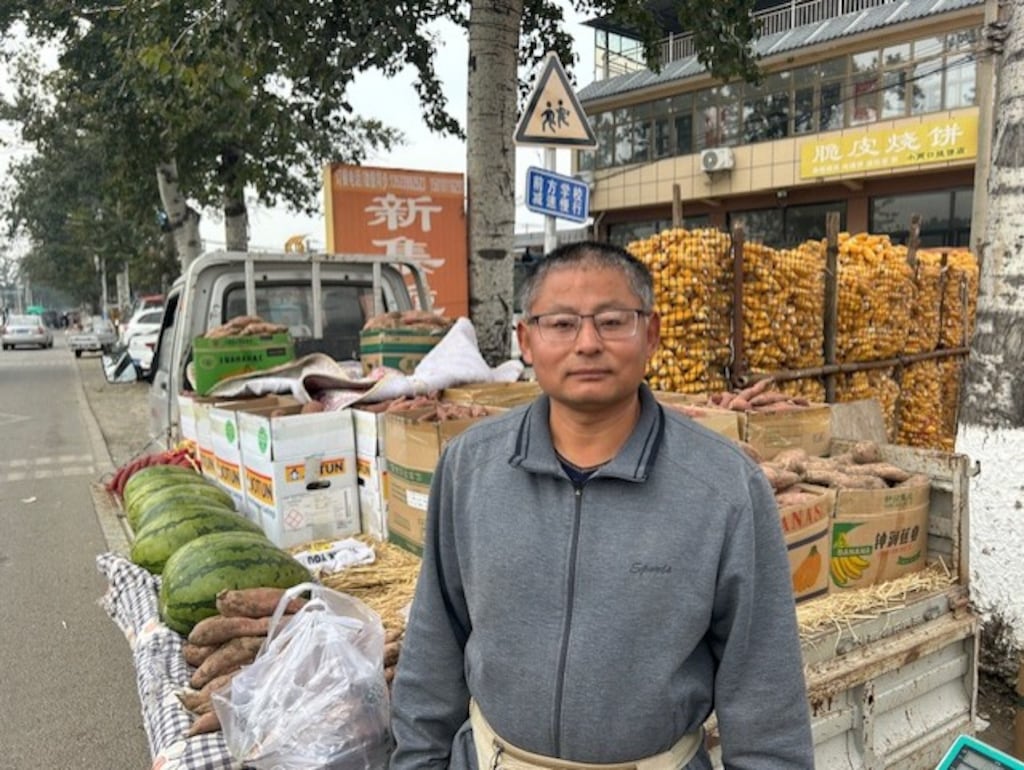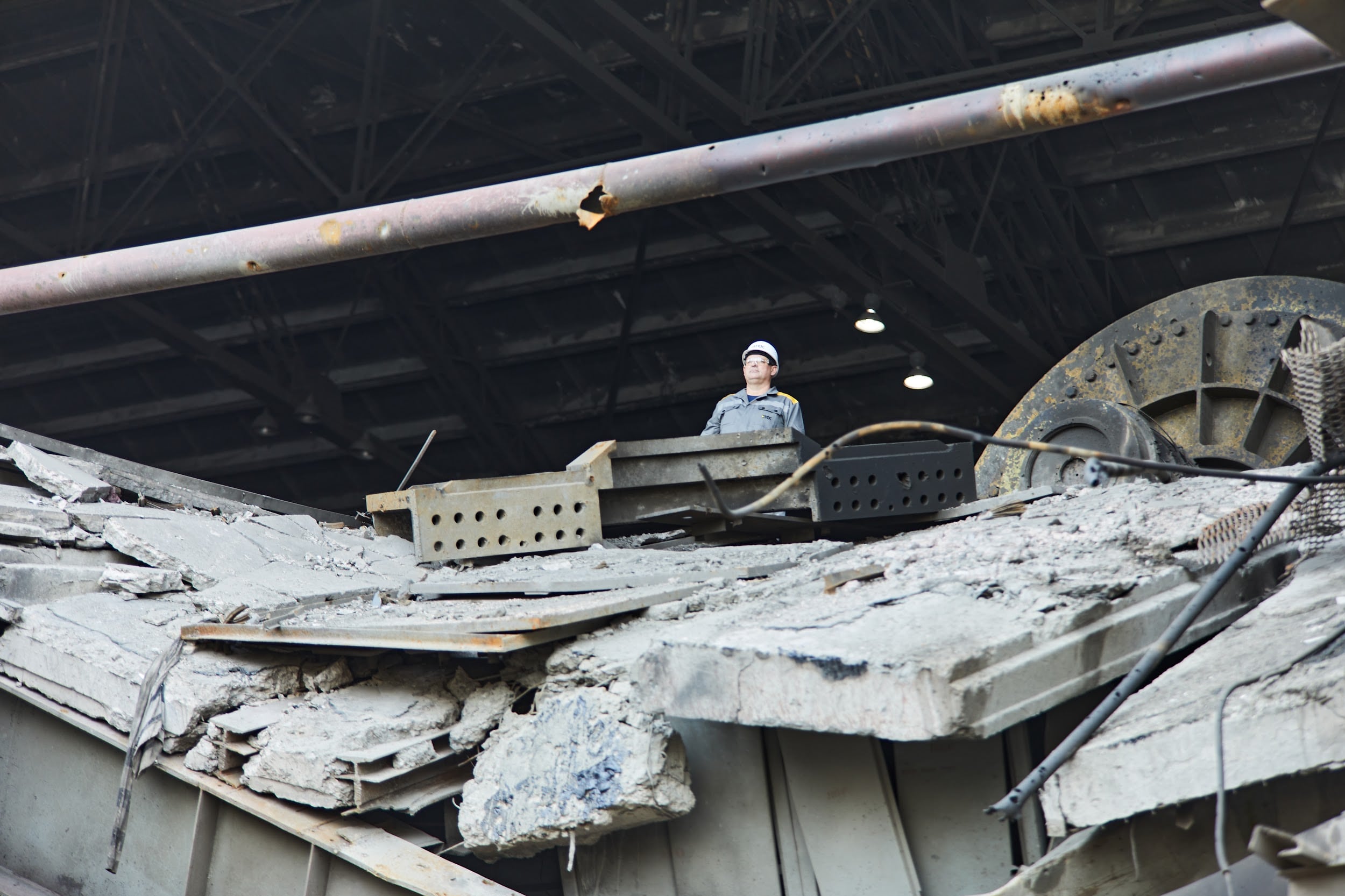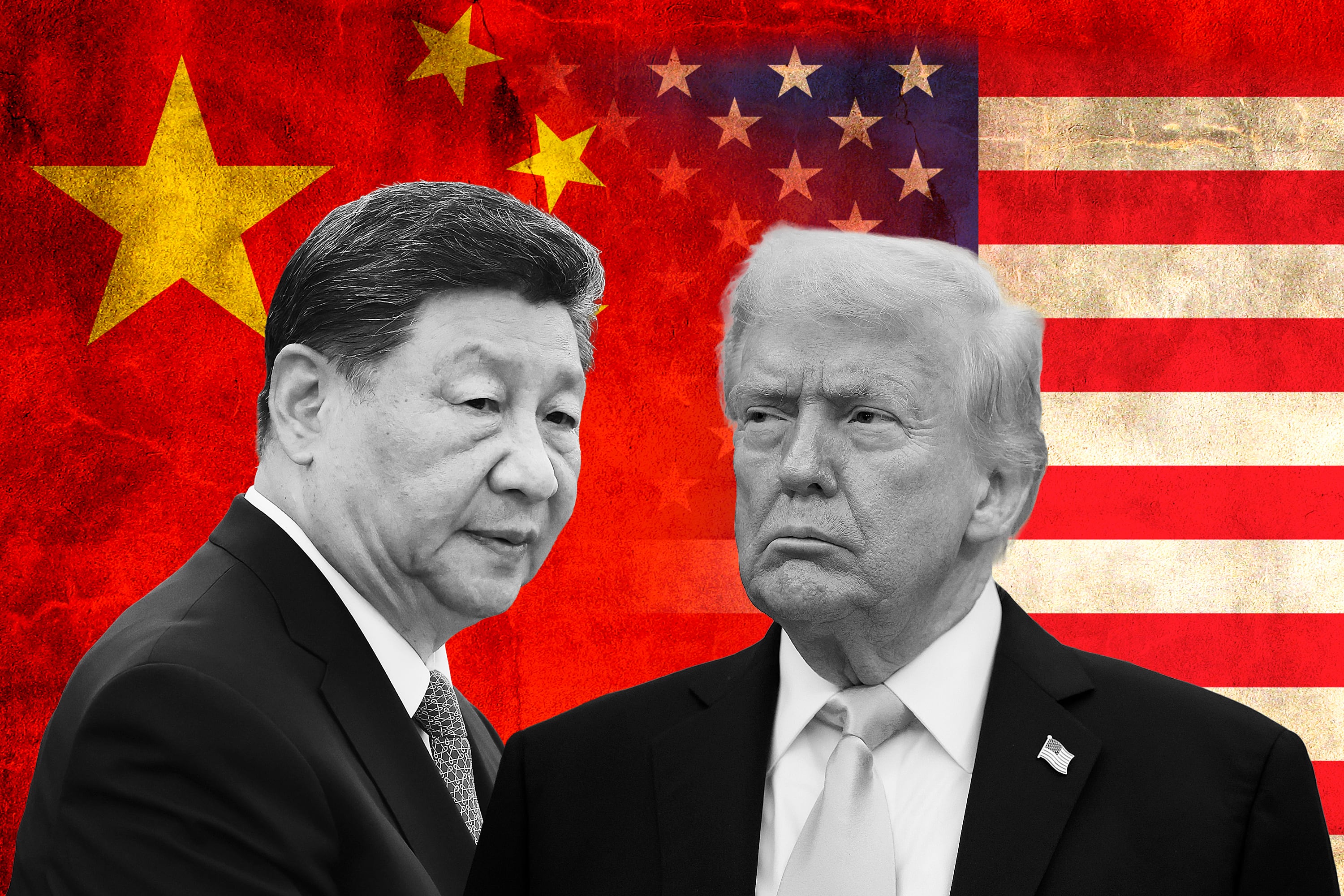Wang Huai Ming’s stall on the main street of Jixian County is the opened-out bed of a small, dropside truck laden with melons and sweet potatoes. Behind him is a mound of sweetcorn, which he also grows on the patch of land he leases a few kilometres away. He sells his produce here twice a week.
“I know all the vendors around here; we all come from three different counties, within a 20km radius. We’re all very friendly to each other, like a small community,” he says.
Wang was born and raised here, a rural area between Beijing and Tianjin and close to the Great Wall. But he moved to Beijing as a young man, getting a job installing CCTV systems and staying in the capital for eight years.
Then he met a woman from the same part of the country as himself and they decided to get married and start a family. China’s hukou system of household registration meant that his children would have to return to his home district once they reached junior high school, so he decided to move back when he got married.
READ MORE
He still installs surveillance cameras, mostly for farmers to prevent theft or for people to monitor their elderly parents at home. Between that work and his fruit and vegetable sales, he earns about as much as when he was in Beijing but the cost of living is much lower.
“Life in Beijing was a constant struggle, incredibly stressful, and I was nearly always out early and home late. Back here in my hometown, I feel so much freer, completely relaxed and without any burdens,” he says.
“There’s nothing in Beijing that I really miss. When I was in Beijing, I could even say that I didn’t have much of a life.”
Wang is part of a trend of city dwellers going back to their hometowns in the country, a movement the Chinese government has been encouraging for the past 10 years as part of its programme of rural revitalisation. This follows decades of public policy that promoted the greatest urbanisation in human history, with hundreds of millions of people leaving the countryside for huge new cities.
According to data cited in a United Nations Development Programme (UNDP) report this year, China had 172 million migrant workers in 2021. These are people who, like Wang when he lived in Beijing, have their household registration in one place (usually a rural area) but work elsewhere, usually in a city.
Rural residents who migrate to cities are usually younger and with higher education levels than those who stay behind, draining their home districts of human capital. Beijing is targeting specific groups of migrants to return home, offering specific education and training opportunities, financial incentives and support for entrepreneurs to start businesses.
Rural incomes have grown in recent years and investment in infrastructure and technology has narrowed the gap between city and country. One reason Wang is happy to raise his children in Jixian is because it is a place transformed from when he was a child.
“In the past, rural houses were mostly brick-and-tile structures; now they are all two-storey concrete buildings. As for roads, when I was a child, they were all dirt roads; now they are almost all paved,” he says.
“Rural culture has also become richer over the years. In the past, there were basically no leisure activities in rural areas, no squares or basketball courts like these. Now there’s more entertainment and sports facilities and a lively nightlife.”
Wang’s two children are now in their teens and he expects them to leave home when they finish school, with his daughter hoping to study medicine and his son planning to become a soldier. He and his wife will stay in Jixian, where a growing number of older Beijingers have become his neighbours, renting out their homes in the city and enjoying rural life.
“They really enjoy living in the countryside because they can rent a house and grow their own vegetables, which is very healthy,” he says.
“Beijing’s elderly find city life too boring and not as comfortable as living here. The air quality and the interaction between people here are very pleasant. Rural people are simple and honest, and life here is peaceful. If these elderly people return to Beijing, they just stay indoors and have no life to speak of.”
















